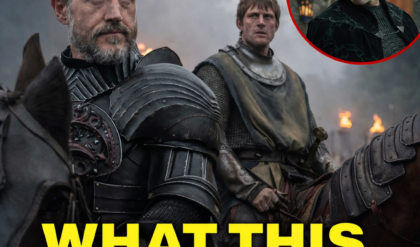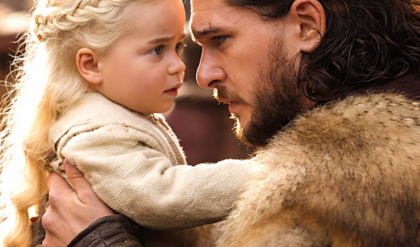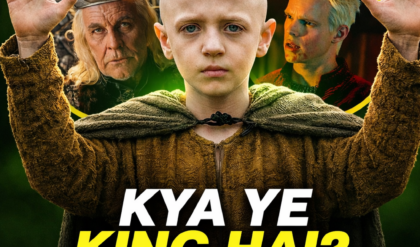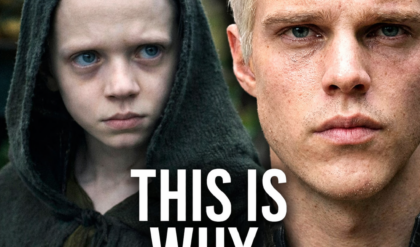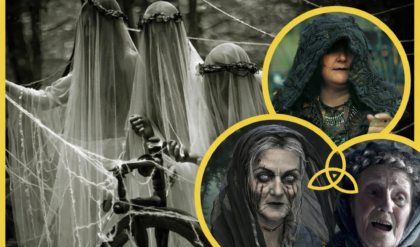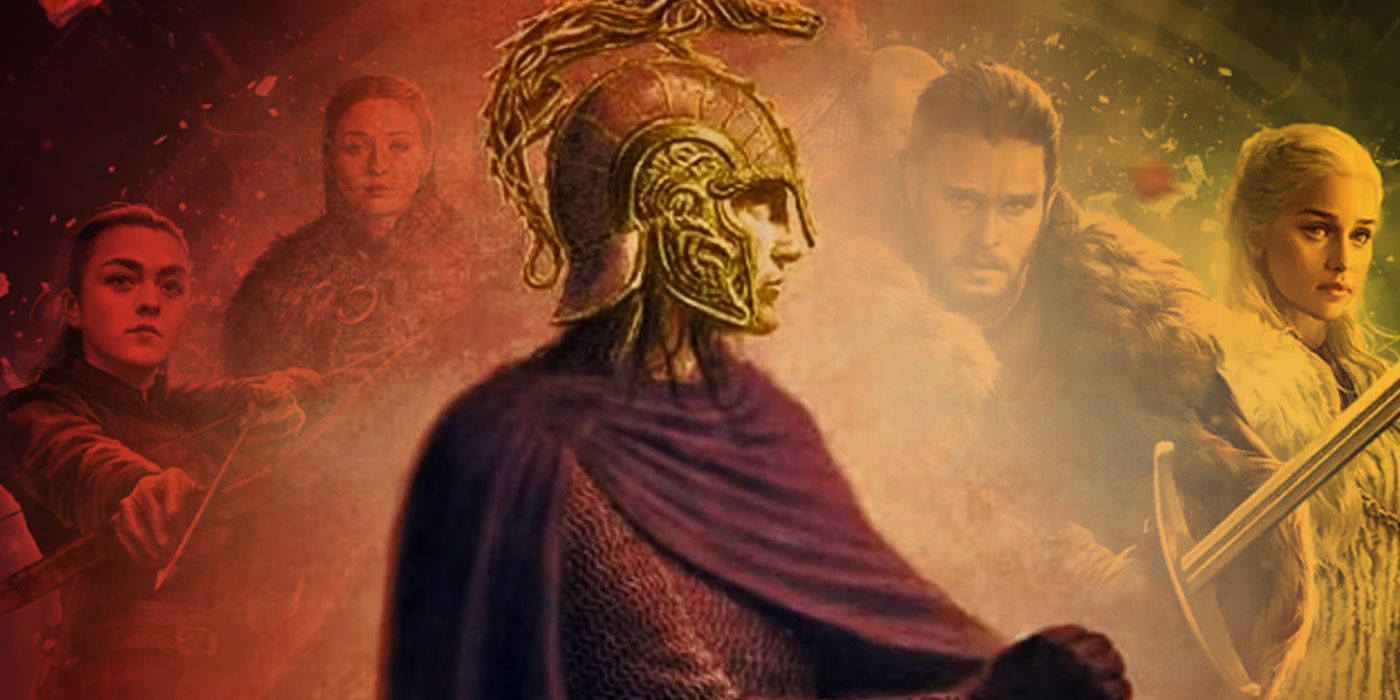
Anyone who thinks Tolkien can’t get dark has never read The Silmarillion. This chronicle of Middle-earth’s First Age has many dark stories, but none can match the 21st chapter of the book, “Of Túrin Turambar.” The story of Túrin is full of darkness, bloodshed, and pain, presenting a hero who is as grey as they come. Túrin’s story wouldn’t feel out of place in Game Of Thrones and makes some of the stories viewers saw there look downright cheery by comparison.
Master Of Doom
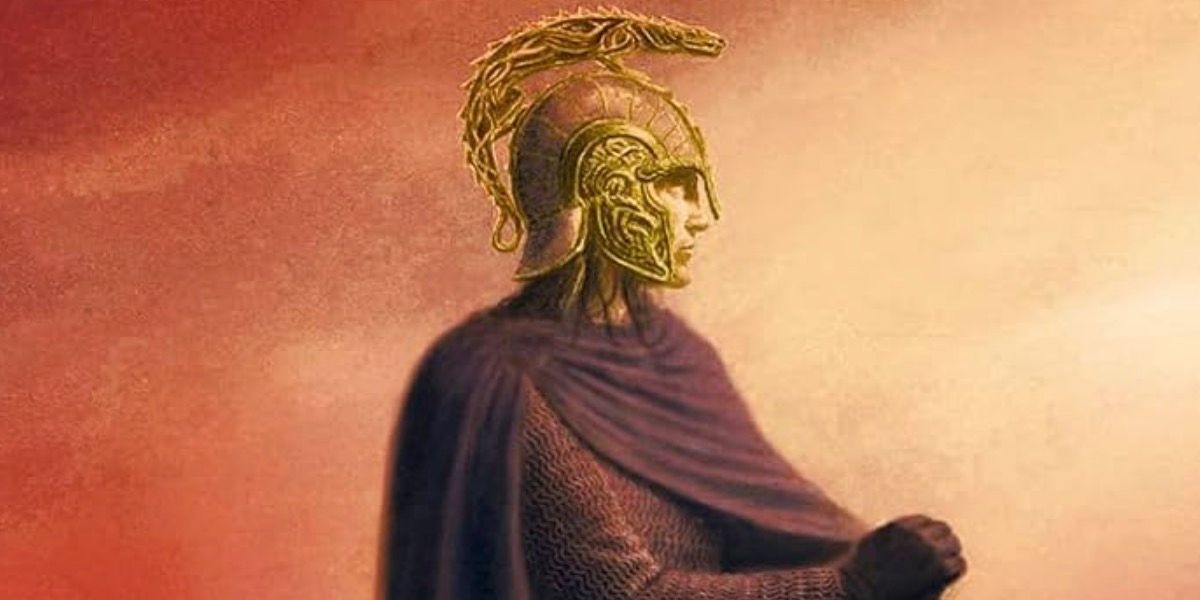
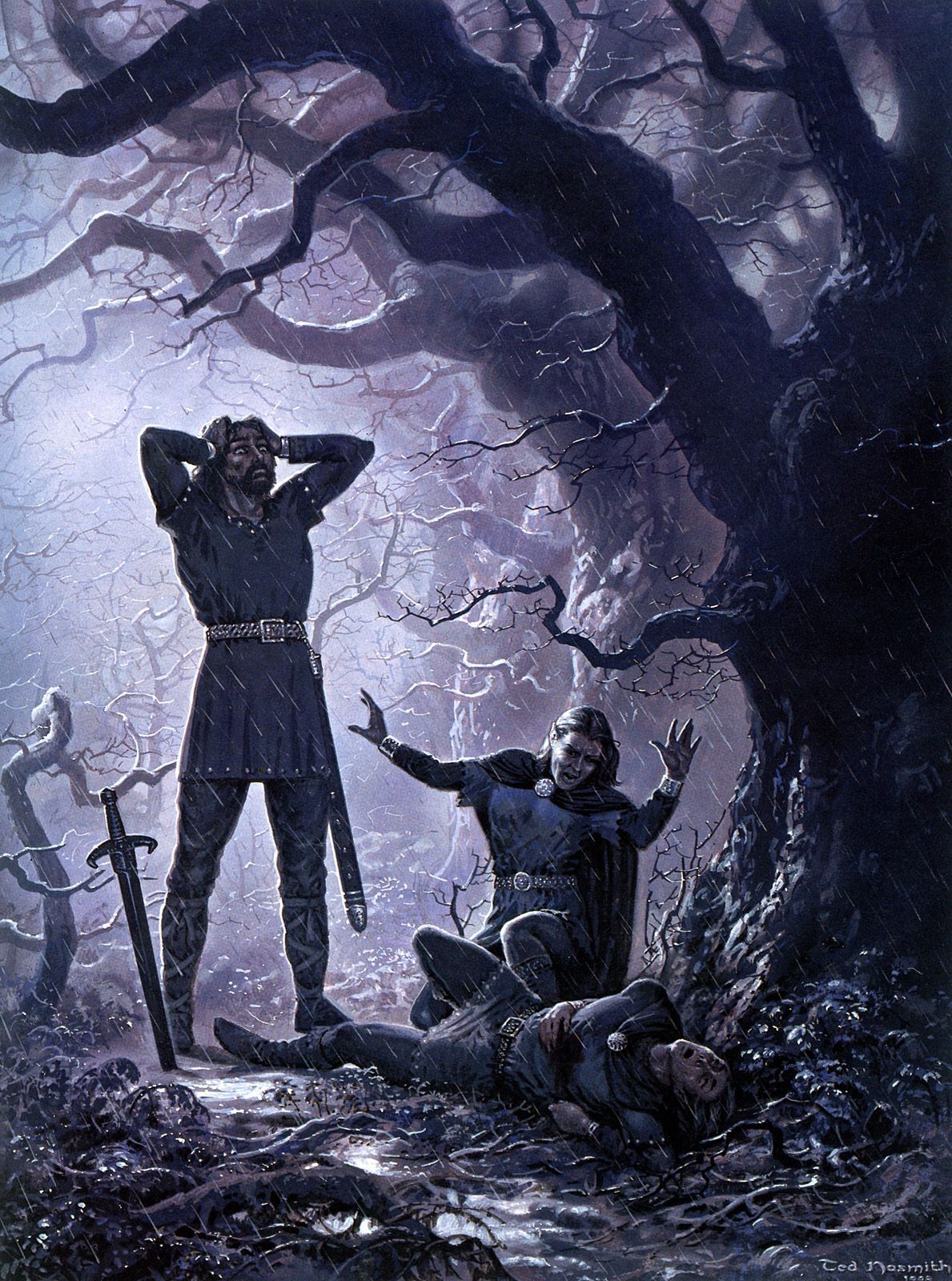
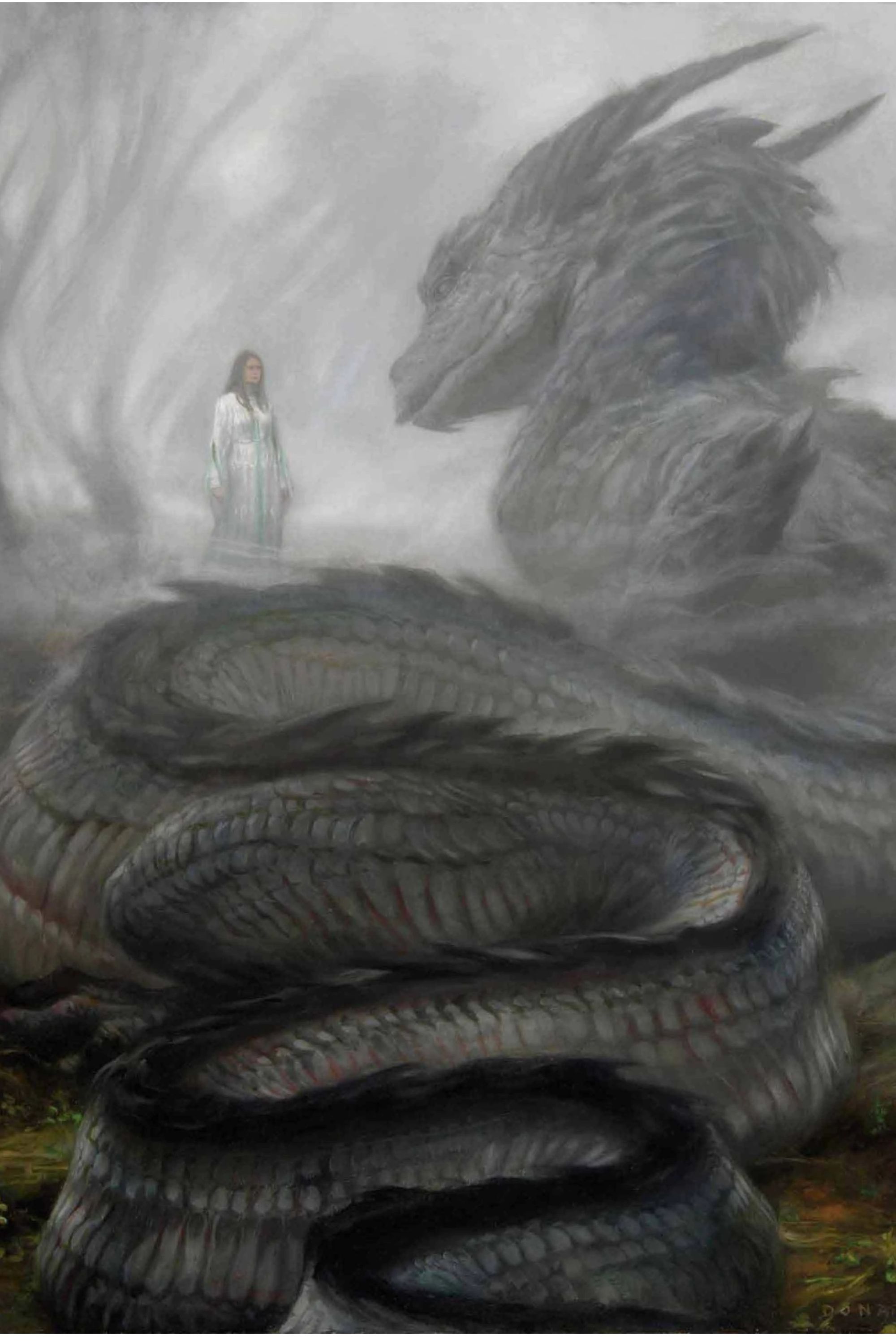
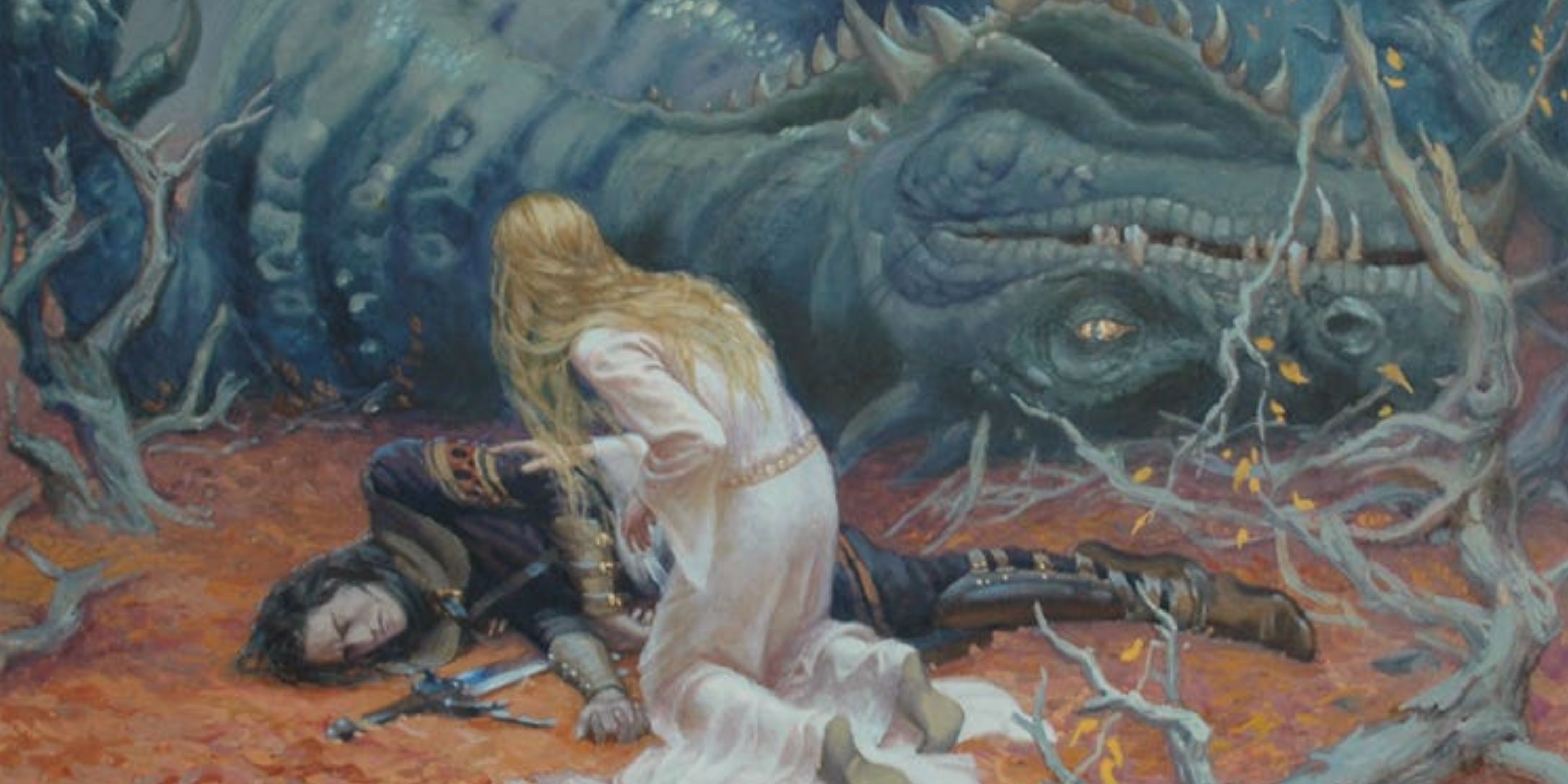
Túrin Turambar is the son of Húrin Thalion, the lord of the Men of Dor-Lomin. While the majority of Men served the Dark Lord, Húrin and his brother Hour allied with the Elves. Húrin was considered the mightiest of mortal Men and participated in the Fifth Battle of the war against Morgoth. Húrin was the last Man alive on the battlefield, surrounded by a mountain of dead Orcs and Trolls, wielding an ax with two hands. Every time he killed a foe, he yelled out, “Aurë entuluva,” which translated from Elvish means, “Day will come again.” Húrin was finally captured and brought before Morgoth.
Morgoth was the greatest enemy of the living and the first Dark Lord. He was pure evil and, as such, decided to hurt Húrin in the worst way possible. Morgoth put a curse on the Man and sat him at the pinnacle of his fortress, Thangorodrim. Morgoth cursed Húrin’s family and forced him to watch ceaselessly as his wife, son, and then unborn daughter were tormented by the curse. Dor-Lomin was taken by Morgoth’s forces and given to one of the traitorous Houses of Men. This was the world in which Túrin was raised.
His mother Morwen, pregnant and not knowing her husband’s fate, still had the respect of the people as the Lady of Dor-Lomin. She hid Túrin, eventually sending him off to the Elvish kingdom of Doriath, where he was raised by King Thingol and Queen Melian as their own. This is where he met Beleg Strongbow, an Elf who would become one of his best friends, and where the curse of Morgoth would first strike Túrin.
Many of the Elves of Doriath resented the Man among them, despite the deeds he did in the battle against Orcs and evil Men, and when Túrin came from the woods after battle to the king’s table, an Elf named Saeros mocked and attacked him. Túrin chased him through the forest and Saeros panicked, fearing the Man, and accidentally ran off a cliff. Túrin believed that this crime would cost him everything, so he ran away from Doriath. The irony is that Thingol learned the truth of what happened, blamed Saeros for the whole situation, and decreed that Túrin did nothing wrong, eventually sending Beleg to find the boy he considered a foster son.
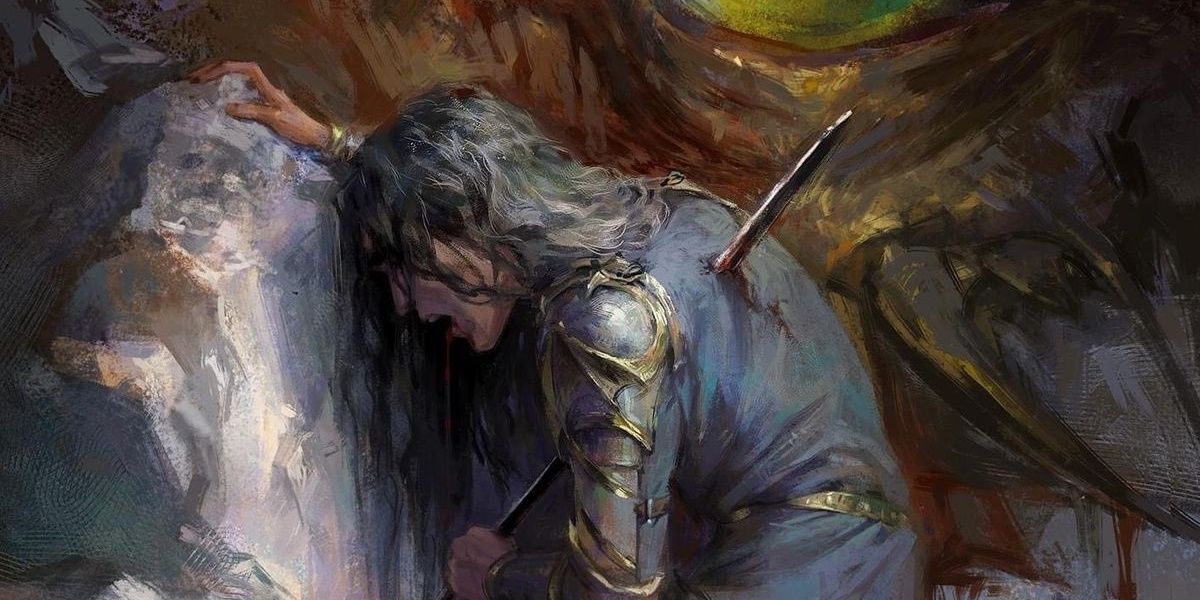
Túrin destroys the hidden Elf kingdom of Nargothrond when he counsels Orodreth, the king of Nargothrond, to use the city’s forces to attack the Orcs. The rumor of Túrin, wearing the Dragon Helm of Dor-Lomin and leading the forces of the hidden city, draws the dragon Glaurung, who finds the location of Nargothrond. In the battle, Glaurung prevents Túrin from rescuing Orodreth’s daughter by telling him of the suffering of his mother and sister in Dor-Lomin. Túrin runs off to Dor-Lomin to find his mother and sister gone, having escaped to Doriath years ago because Túrin and Beleg had killed Morgoth’s forces. Believing them safe, he joins a village of Men in the forests, leaving behind his war. However, his sister Nienor left Doriath and tracked him to Nargothrond, where she confronted Glaurung. Glaurung erased her mind with his magic and sent her into the woods, where she was eventually found by Túrin.
Not knowing their relationship, they fell in love and got married. They live something of a charmed life, but Glaurung’s movements in the area endanger the village, so Túrin and Nienor go after the dragon. Túrin strikes a mortal blow against the dragon just as Nienor shows up, and Glaurung restores her memory and tells her the true name of her husband. Pregnant with his child and distraught with their actions, Nienor throws herself from a nearby cliff. Túrin then throws himself onto his sword, ending his life. Later, a grave marker is placed for both of them, with Túrin’s part of the stone saying “Túrin Turambar turún ambartanen”. “Turambar turún ambartanen” means “master of doom, by his own doom mastered,” which perfectly describes the painful life of Túrin.
Túrin Shows The Maturity Of Tolkien’s Writing
Game Of Thrones became popular because it was an “adult” look at fantasy. The Lord Of The Rings was looked at as kids’ stuff, as its simple morality and lack of blood and sex made it feel less mature than GoT. This is true to an extent. The Lord Of The Rings was written when fiction wasn’t as risque as it is today. That’s not to say there were no violent or erotic works, but they certainly weren’t written by someone like Tolkien, a professor at Oxford who loved creating the languages and cultures of Middle-earth. Fantasy stories were for children, and Tolkien’s first work in Middle-earth, The Hobbit, was explicitly written for children. The Lord Of The Rings is certainly more mature, both in themes and in the way it was written than The Hobbit, but in the 21st century, even the late 20th, it’s still rather tame.
The Lord Of The Rings is full of epic battles, but they are rather sanitized. The members of the Fellowship, barring Boromir at the end of his life, are all perfect heroes, with no shades of grey to be seen. The villains are all monstrously evil, with no humanizing qualities. So, while The Lord Of The Rings was considered a mature work when it was first published in the 1950s, it can’t stand next to the narrative complexity, blood, profanity, or sex of Game Of Thrones. However, The Silmarillion is a different story.
Tolkien spent decades, starting long before he wrote even The Hobbit, working on the stories in The Silmarillion, writing some during his time serving in World War I. The Silmarillion is much more grey in morality than The Lord Of The Rings. Sure, there are still obvious heroes and villains, but there are characters like Fëanor, his sons Curufin and Celegorm, Mîm, Eöl and his son Maeglin, and several others who are ostensibly “heroic,” fighting against Morgoth but still acting according to their own codes and for their own good, completely unlike anything in The Lord Of The Rings.
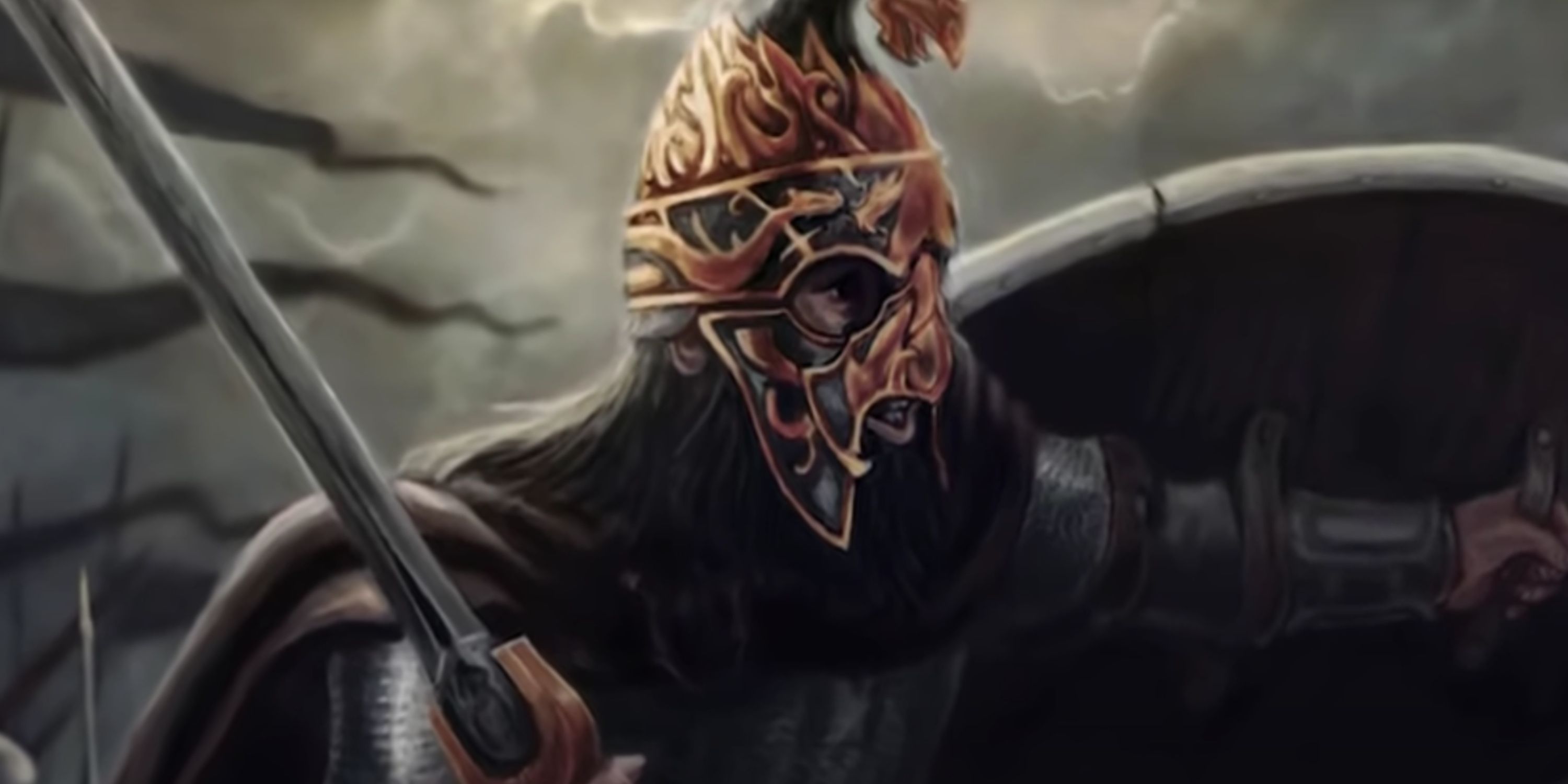
“Or Túrin Turambar” is the darkest part of a very dark story. The Silmarillion has very few moments of triumph – even the end of the war against Morgoth is portrayed as a sad event because of all the useless death and destruction caused by the conflict. Túrin is a complex character – a man driven by the desire for revenge against the beings who took his father away from him. His desire to fight against Morgoth drives him to excesses that always lead him to tragedy. Túrin’s life is an unfolding tragedy, one that keeps heaping pain onto the reader.
Túrin’s grand tragedy is basically The Silmarillion in microcosm – a story where the little victories lead to bigger defeats and the whole thing ends with evil vanquished, but everything is ruined. Túrin shows that Tolkien wasn’t just writing moral homilies and simplistic stories, but giving readers grand tragic narratives, like the best of Shakespeare and the like. It’s plain to see that Game Of Thrones, and its source material book series A Song Of Ice And Fire, owe a lot to The Lord Of The Rings.
However, GoT is considered more adult than The Lord Of The Rings and Tolkien’s Legendarium because of how “mature” everything is, how grey the morality of the characters can be, and the way the story uses violence and sex. Feeling that excess is somehow more mature than Legendarium’s poetic world is somewhat childish – and the tale of Túrin Turambar shows this.
Túrin Turambar’s Tragedy Reveals Darkness That Game Of Thrones Can’t Match
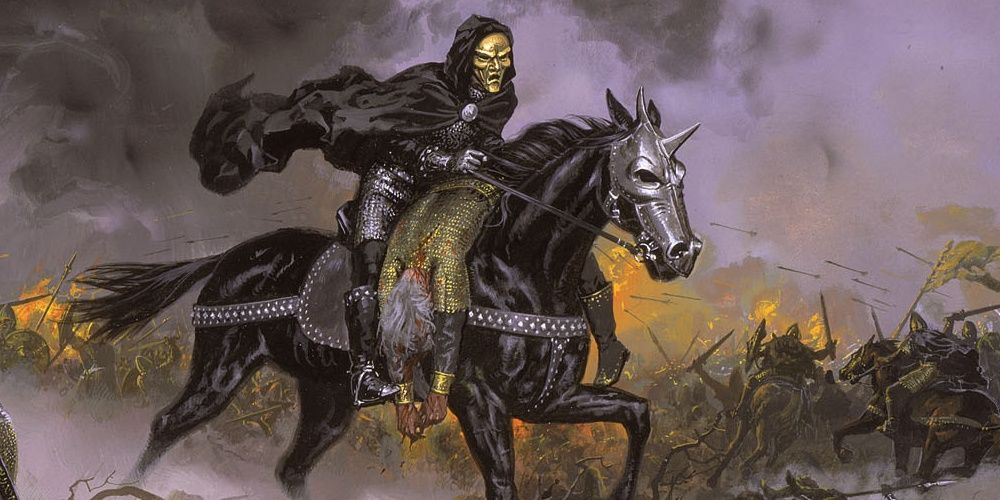
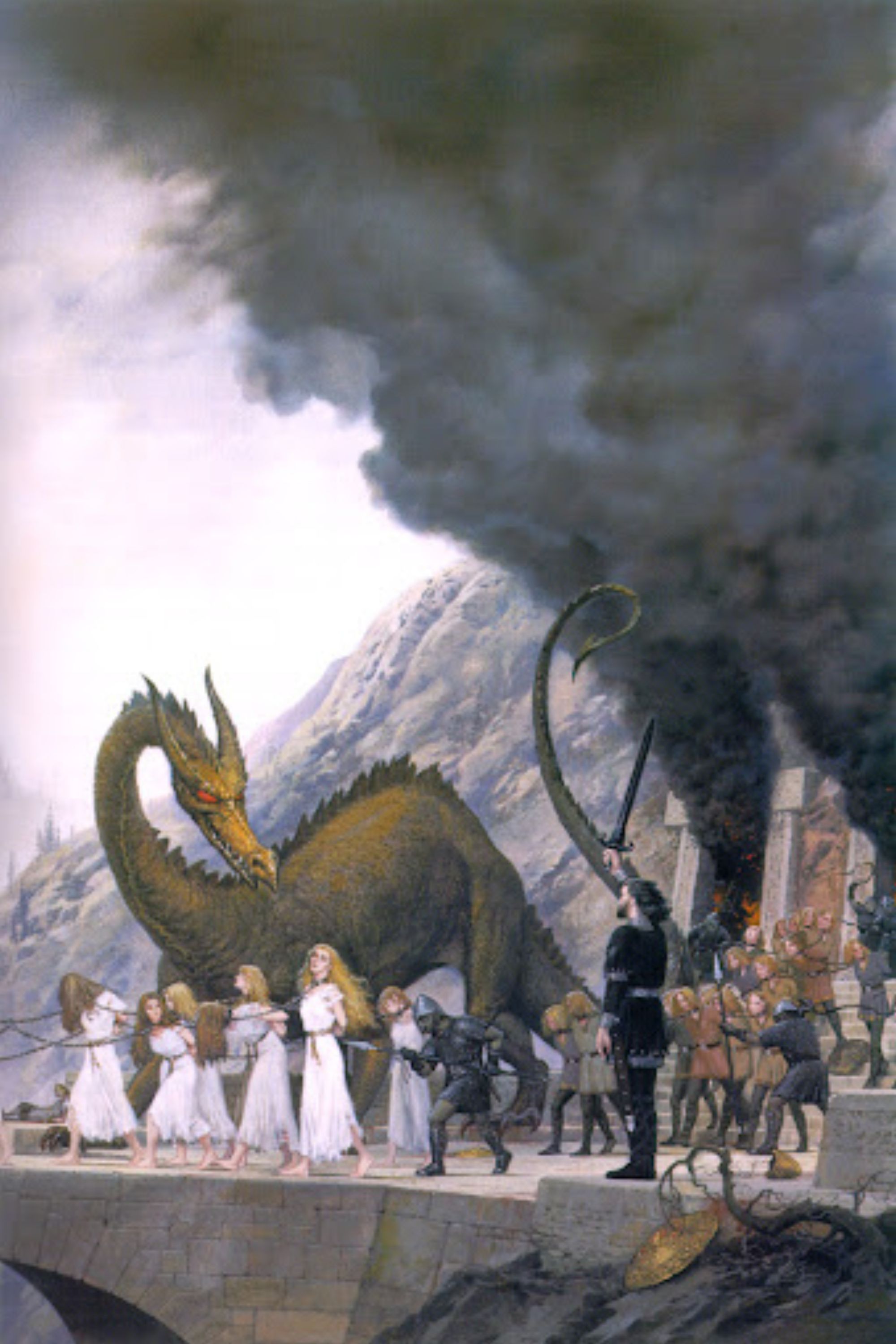
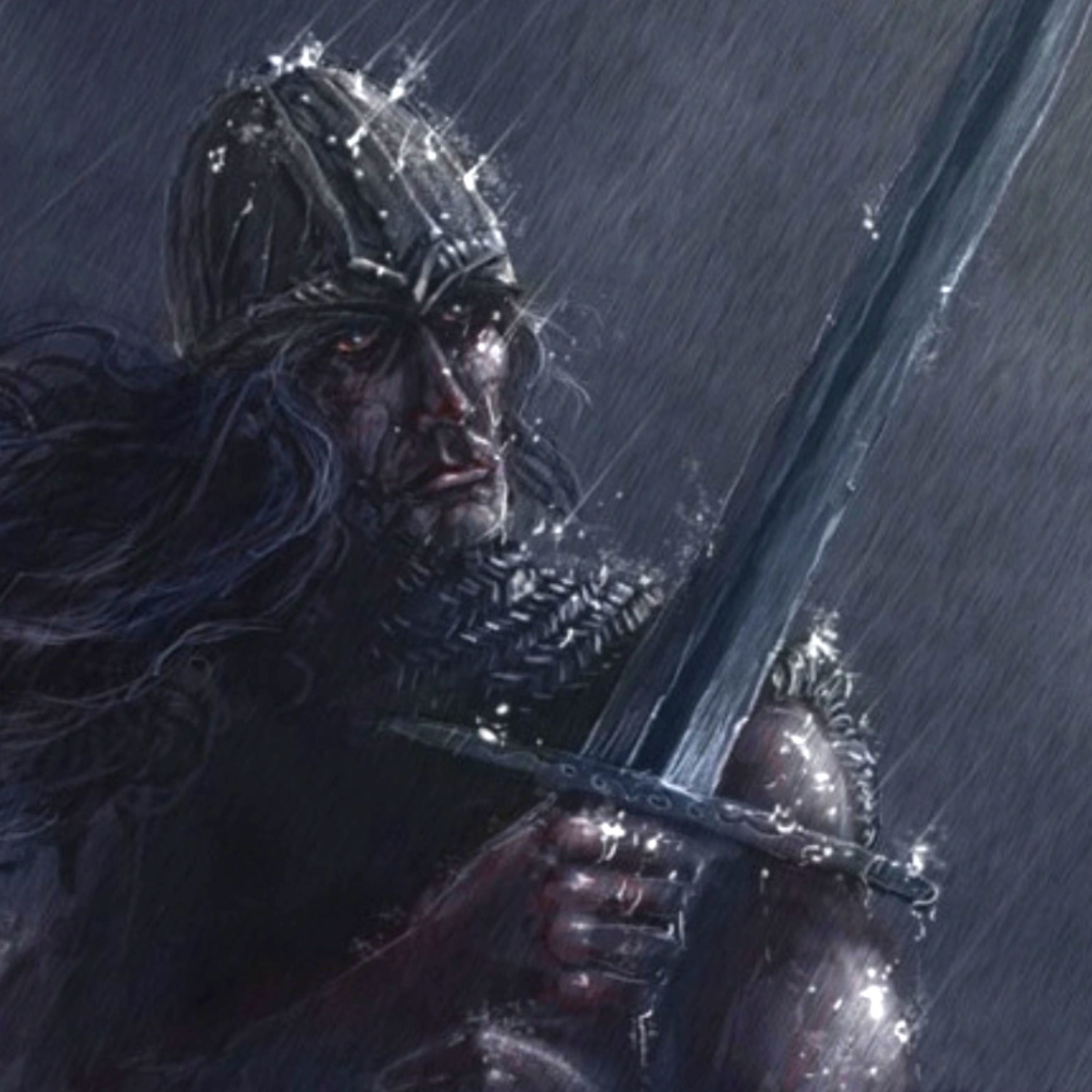
Game Of Thrones has some epic moments, like the Red Wedding or the death of Ned Stark or Melisandre and Stannis’s sacrifice of Shireen, and its source material has even more, a million little instances showing readers how terrible life in Westeros can be. However, even then, it’s all quite grounded in reality. Túrin Turambar’s tale – full of Túrin killing his friends, committing evil acts accidentally, falling in love and marrying his sister, and causing suffering everywhere he goes – is dark in a way that Game Of Thrones can never be. Túrin exists in a world of gods and magic, one of great heroes and monstrous villains. His story seems like it should be something like that, but instead, it is full of blood, death, pain, and despair. Túrin is a frightening character at the best of times, both because of his curse and because of his nature, that of a warrior who existed only to bring death to his enemies.
The Lord Of The Rings has some scary heroes, but none of them match Túrin. Even calling him a hero feels a little much. At best, he’s a mass murderer who kills the right people. Compare him to Ned and Robb Stark, the chivalrous perfect Lord and his perfect son, Jon Snow, a bastard who is nobler than any of the highborns, or Davos Seaworth, a smuggler who loves his family and does his duty to his lord, and Túrin fits better in their world than they do. His actions and life reveal an edge that some diehard LOTR fans, many of whom might not have read The Silmarillion or The Lord Of The Rings, don’t even know exists in the Legendarium.
